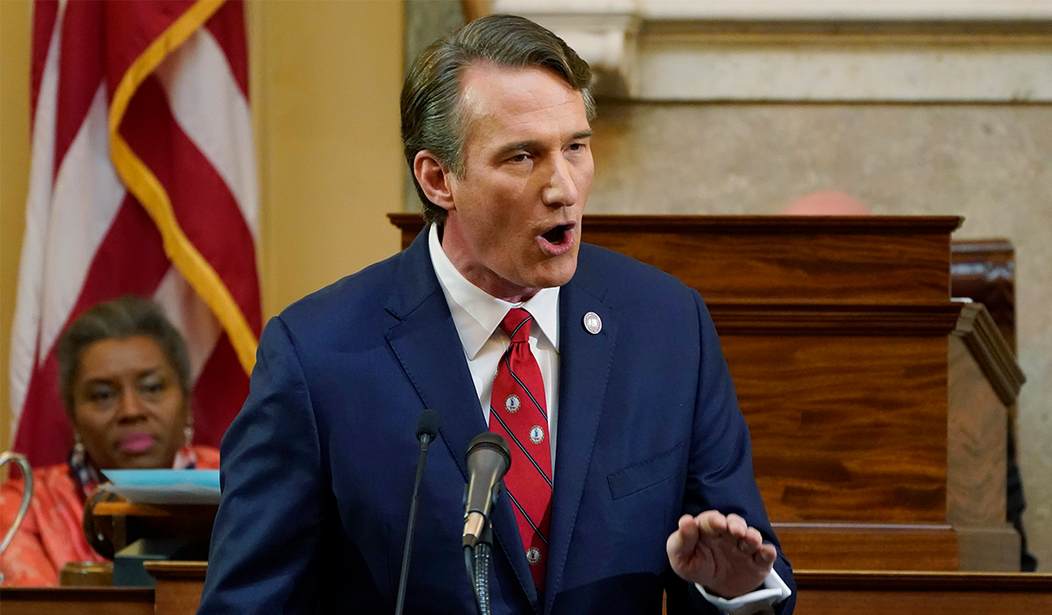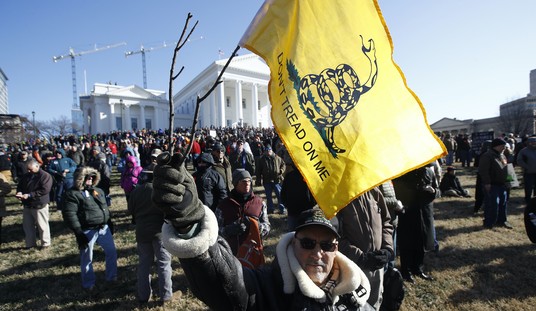Democrats are trying to make the pitch to voters that Republicans are soft on crime because they’re generally opposed to new gun control laws. It’s a narrative that doesn’t appear to be working too well, probably because most of us aren’t naive enough to believe that passing laws aimed at restricting the rights of responsible gun owners isn’t going to have much of an impact on those who are committing carjackings, home invasions, robberies, drive-by shootings, and other violent crimes.
Now Virginia Gov. Glenn Youngkin and Attorney General Jason Miyares have announced new plans to combat crime in the state; not by criminalizing the Second Amendment but by putting more police on the streets as well as focusing attention on the relatively small number of prolific offenders who are responsible for a disproportionate amount of crime in their communities. It’s a strategy that should lead to a substantial reduction in shootings and homicides, while leaving the rights of the law-abiding intact.
On Monday, Youngkin announced Operation Bold Blue Line, which is described as “a series of concrete actions to reduce homicides, shootings, and violent crime.”
Operation Bold Blue Line is focused on supporting police departments throughout the state by improving pay, recruiting and training. This is in respond to an overall decrease in police across the state, according to Youngkin. According to the Office of the Governor, some Virginia cities law enforcements vacancy rates approaching 40%.
“Across Virginia, people wake up and turn on the morning news to hear story after story of violence in their communities: homicides, shootings, and aggravated assaults,” Youngkin said. “Virginia’s blue line is getting far too thin.”
Operation Bold Blue Line aims to increase these numbers with a heavy focus on police recruitment and training. In addition to launching both state and nationwide recruiting efforts, the operation will also introduce an 8-week “fast-tracked” training academy for law enforcement, and will create “Badge & Degree” programs for students interested in joining Virginia law enforcement.
The program is estimated to cost over $100 million, with $13 million going towards violence invention efforts, $30 million to recruiting and $75 million to equipment and training.
This alone should be a big help, particularly in cities that are struggling to rein in violence like the state capitol of Richmond. As of June of this year, the Richmond PD was woefully short on personnel, with Brendan Leavy, the President of the Richmond Coalition of Police, calling the situation an “officer safety issue every day”.
Leavy called working conditions at the Richmond Police Department deplorable and said morale was low.
He said he felt he and other members of RCOP were being ignored by their bosses.
Richmond Police has 140 vacancies, meaning almost 20 percent of the department is unstaffed.
Leavy said understaffing is taking its toll on officers, causing mandatory overtime, and leading to burnout.
He said it has also impacted safety.
“An officer left last year because he didn’t feel safe working the area he worked because there weren’t enough officers on the street,” Leavy said. “When we feel concerned with our own safety, I can only imagine how the community feels.”
The other component of the $120-million public safety strategy announced by Youngkin and Miyares is a program that we’ve written about extensively here at Bearing Arms; Operation Ceasefire.
According to the Office of the Attorney General, Operation Ceasefire will reduce violent crime by supporting crime prevention programs, raising money for victim protection funds, supporting police in high crime neighborhoods and prosecuting repeat offenders.
The General Assembly allocated $5 million for Operation Ceasefire earlier this year, and it is expected to be fully funded this winter, according to the office of the Attorney General.
Operation Ceasefire is a proven strategy that’s been used for close to 30-years in departments across the country, and as long as the program has buy-in from police and the community itself the results can be staggering, as writer John Seabrook discovered firsthand when he investigated Cincinnati’s use of the program more than a decade ago.
What I saw in Cincinnati not only changed my mind but rocked my world. Ceasefire called for police to gather together the people responsible for gang-related shootings and do something simple—meet with them, along with clergy, victims, and other community members, and tell them to stop. The staged meeting at which the victims and perpetrators confronted one another in the presence of Cincinnati police officers was one of the most extraordinary events I have ever reported on.
The success Kennedy and his colleagues had in Cincinnati has been repeated multiple times. Cities all over the country are using the program now, including the N.Y.P.D. in Kennedy’s (and my) home base, Brooklyn. As a result, there has been a sea change toward acceptance of the approach among scholars and practitioners alike. Zero tolerance has been replaced by “precision policing” and a focus on pacifying violent groups. Stop-and-frisk is on the way out, and violent crime continues to go down. Ceasefire is a big part of this transformation in policing.
It’s not just about telling these gang members to stop. It’s about providing them the tools and support they need to change their ways, but also ensuring that there are severe consequences if they don’t. Typically, Operation Ceasefire involves local, state, and federal law enforcement, and when one of the subjects of Operation Ceasefire refuses to take advantage of the opportunity to turn their life around, typically their next charge is referred to federal prosecutors, who seek the maximum sentence allowed under federal law. It’s a carrot and stick approach, and it gets results.
As a Virginian who’s been advocating for Operation Ceasefire for several years, I’m thrilled that the program is going to be fully funded, which will allow cities like Richmond, Roanoke, Petersburg, and Virginia Beach to receive grant money to put the strategy in place. I just hope that the Democrats who are in charge of local government take advantage of both Operation Bold Blue Line and Operation Ceasefire instead of dismissing these efforts and doubling down on their party’s strategy of increasing public safety by infringing on our right to armed self-defense.








Join the conversation as a VIP Member